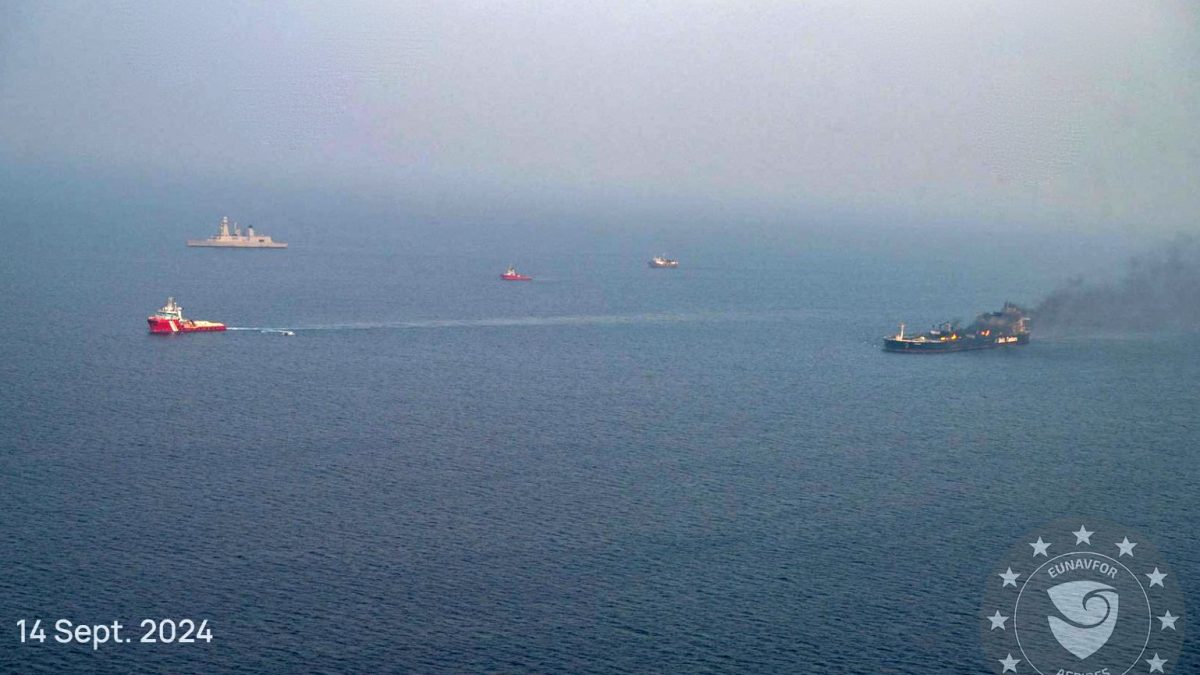The Red Sea, a vital artery for global trade, remains eerily quiet. Shipping companies continue to bypass the route despite the recent ceasefire between Israel and Hamas.
In recent times, the Iran-aligned Houthi militia has carried out over 100 attacks on ships since November 2023, claiming it’s in solidarity with Palestinians in Gaza.
But why are vessels transporting goods across the world still avoiding the Red Sea trade route now that the fighting in Gaza is poised to be paused?
The decision has to do with lingering fears of Houthi attacks.
Although the group has signalled that it may halt attacks if the ceasefire holds, scepticism runs deep among industry leaders.
The European Union’s naval force in the region has maintained its high threat assessment, further reinforcing the reluctance to resume Red Sea operations.
Lingering risks and related costs
Shipping and insurance executives say the risks of navigating the Bab al-Mandab strait– which connects the Red Sea to the Guld of Aden– remain prohibitively high.
The uncertainty has pushed companies to reroute shipments around the Cape of Good Hope, adding significant time and cost.
Higher war risk insurance premiums for vessels still brave enough to transit the Red Sea further deter shipping.
Premiums range from 0.6 per cent to 2 per cent of a vessel’s value, especially for ships linked to Israel or the United States.
Matt Castle of logistics group C.H. Robinson noted that cargo insurance challenges and time constraints make a rapid return to the Red Sea unlikely.
Impact Shorts
More ShortsFor larger vessels like liquefied natural gas carriers, resumption of operations will take even longer due to heightened safety concerns.
What industry says
Jay Foreman, CEO of US-based Basic Fun, which supplies toys to major retailers like Walmart and Amazon, is among those steering clear.
“There is no way I’m putting any of my merchandise on a boat that’s going to go through the Red Sea for some time,” he said. “I’ll spend the extra money, and I’ll send everything around the tip of Africa… It’s just not worth taking a chance.”
The caution is echoed across industries.
Norwegian shipper Wallenius Wilhelmsen, which transports vehicles, said it would not resume Red Sea operations “until it is safe.” Similarly, Swedish fashion giant H&M and Tailwind Shipping Lines continue to monitor the situation without committing to the route.
Maritime security sources have warned that any pledge by the Houthis to cease attacks will be met with scepticism. “It’ll definitely be a case of trialing the route, making sure that the ceasefire is genuine,” said Craig Poole, managing director at Cardinal Global Logistics.
With inputs from Reuters
)